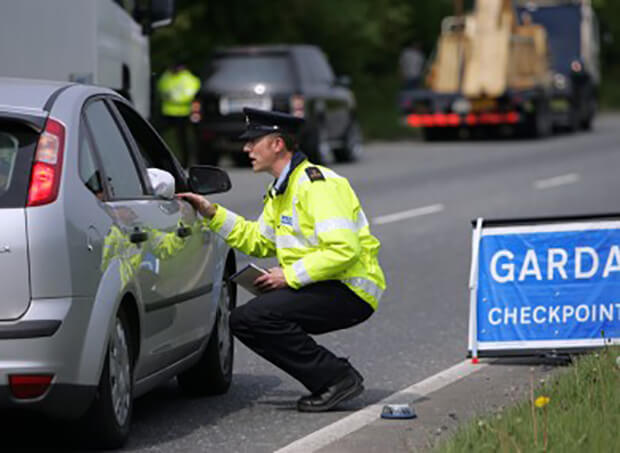8 in 10 motorists support new Garda drug testing

A few weeks back the Gardaí introduced new roadside drug testing technology in their efforts to enforce the law with regards to road safety.
The Gardaí can now identify motorists driving under the influence of cocaine, marijuana, opiates and benzodiazepines such as Valium and also identify certain legal prescription drugs.
The AA Ireland polled of over 3,000 AA members and customers, 78.97% of those surveyed described themselves as very supportive of the new testing, with a further 12.37% stating they were ‘somewhat supportive.’
Conor Faughnan, AA Director of Consumer Affairs stated:
“Gardaí have always had the ability to test drivers for drugs which may impair their driving ability but had previously relied on less scientific testing such as a balance test. From now on, at specific checkpoints set up for the purposes of drug testing, a saliva sample will be taken by Gardaí and a result will be provided to Gardaí within 15 minutes. In the event of a positive test the driver will then be brought back to the Garda station where a blood sample will be taken for further analysis,”
“If you are taking a prescribed medication in accordance with your doctor’s advice and have not been told that you cannot drive while using it then there is no cause for concern. However, if you do have any doubts about your medication or have felt side-effects which may impact your driving ability after taking the medication then it’s important to consult your doctor or pharmacist to get the best advice or an alternative medication is necessary.”
The survey discovered that women were slightly more likely than their male counterparts to view the measure as positive.
Of the over 65’s, 84.84% described themselves as ‘very supportive’ of the additional drug testing compared to 73.68% of those aged between 36 and 45.
Meanwhile, 80.77% of women surveyed strongly supported the additional testing, compared to 77.85% of men.
With regard to prescription drugs and the concerns of law-abiding drivers, the AA is highlighting that Gardaí will also be required to prove that the driver is affected and impaired by the medication.
In the event that a driver is found to have a level of benzodiazepines in their system which is above the legal limit, they can only be charged with an offence if the Gardaí can prove they are impaired. The impairment advice will come from the Medical Bureau of Road Safety.
Faughnan added:
“When we bring up the word ‘drugs’ we all jump to thinking of illegal substances such as cocaine or heroin, which the new technology will test for, but we sometimes overlook the ways prescription medication can affect your driving,”
“If you are taking Valium, for example, in accordance with your doctor’s advice and you have not been told that you cannot drive then you will not be impacted by this new testing. However, at times we can be a nation of self-medicators and if you start ignoring your doctor’s advice and taking more than the recommended dosage then you do run the risk of a failed result and having your driving ability affected by your medication which could ultimately result in a driving ban.”
“The last thing we want to see is people who are taking prescription drugs for legitimate reasons worried about a failed test or a driving ban. If you are following your doctor or pharmacist's advice and the medication you are taking does not impair your driving ability then this new testing isn’t a cause for concern.”
If you are convicted of driving while under the influence of drugs you could face a fine of up to €5,000 and/ or 6 months in prison and even a driving ban for a year. This will be in the case of a failed test in relation to illicit drugs such as cocaine, cannabis or opiates.

Author

Justin Kavanagh
Justin Kavanagh is a recognised leader
in automotive intelligence and vehicle
data supply to the entire motor industry.
He has almost 20 years experience in
building systems from the ground up.
As the Managing Director of Vehicle
Management System, he understands the
need and importance of trustworthy and
reliable vehicle history and advice to
both the trade and the public.
Follow me on LinkedIn